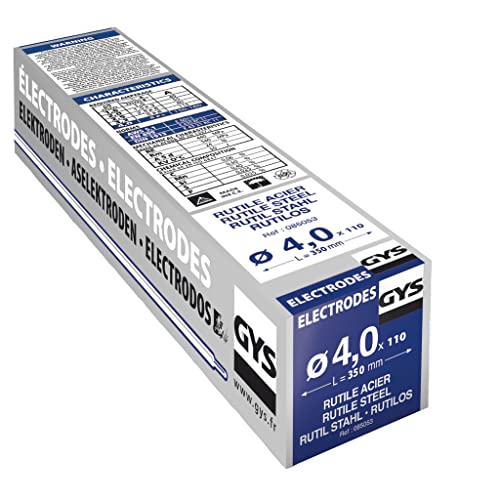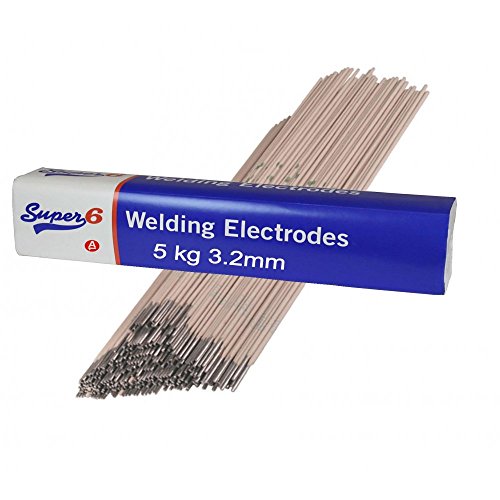Understanding Welding Electrodes: What They Are and Why They Matter
What are Welding Electrodes?
Welding electrodes are crucial components used in various welding processes. Simply put, they are the materials that carry the electric current needed to create a weld. They come in various forms, typically either solid rods or consumable wires, and are used to connect metal parts together by melting and fusing them under heat.
The Importance of Welding Electrodes
The choice of welding electrode can greatly influence the quality of your welding. Using the right electrode ensures a strong, durable bond between metals, reducing the risk of defects that can lead to failures later. This is essential not just in professional settings, but also for DIY enthusiasts looking to achieve high-quality results in their projects.
Types of Welding Electrodes: Finding the Right Fit for Your Project
Different Materials and Their Uses
Welding electrodes come in several types, each designed for specific materials and processes. For example, if you’re welding steel, you might choose a mild steel electrode like E6011 or E7018, which are known for their versatility and good penetration. If you’re working with stainless steel, an electrode such as E308L would be more suitable, as it provides a strong bond without compromising corrosion resistance.
Matching Electrode to Process
Different welding processes require different electrodes. For instance, Shielded Metal Arc Welding (SMAW) often uses stick electrodes, while Gas Metal Arc Welding (GMAW) typically employs wire feed electrodes. Understanding your welding method is vital for selecting the correct electrode, as each type is engineered to perform optimally under specific conditions.
Choosing the Right Welding Electrode: A Step-by-Step Guide
Assessing Your Project Needs
Before we select an electrode, we need to determine the materials we’ll be working with, the thickness of the metal, and the environment where the weld will take place. Each of these factors influences the type of electrode that will give us the best results. For example, outdoor welding may require a more robust electrode to deal with wind or moisture.
Consulting Specifications
Once we have a clear understanding of our project, it’s beneficial to consult the materials’ specifications or guidelines typically provided by manufacturers. These documents help highlight which electrodes are compatible with different materials, ensuring the best fit for your welding tasks.
Testing and Practising
Before committing to a full project, it can be helpful to conduct a few test runs with different electrodes. This allows us to assess which one performs best under our specific conditions and can lead to a more successful final result. It’s always worth taking this extra step in the interest of quality.
Storage and Handling of Welding Electrodes: Best Practices for Longevity
Why Proper Storage Matters
Proper storage is essential to maintaining the quality and longevity of welding electrodes. They can absorb moisture from the environment, which can lead to poor weld quality and defects. Storing them in a dry place can prevent this absorption and keep them in good condition.
Recommended Storage Techniques
For optimal results, we should store electrodes upright in a container that protects them from moisture, dirt, and contaminants. Some users find that wrapping electrodes in sealed plastic bags can also extend their lifespan. This simple practice can save us money on replacements over time.
Common Applications for Welding Electrodes: What Projects Benefit Most
Construction and Repair
One of the most prevalent uses of welding electrodes is in construction and repair projects. Whether assembling steel structures or repairing metal components, the right electrode will ensure durable and reliable connections. It’s essential to select electrodes tailored for these applications to meet structural integrity.
Automotive and Manufacturing
In the automotive industry, welding electrodes play crucial roles in fabricating body parts and frames. The choice of electrode can significantly impact the safety and performance of vehicles. Likewise, in manufacturing settings, precision welding is made easier with the correct electrodes, helping to maintain production efficiency and quality.
DIY Projects and Hobby Welding
For those of us engaging in DIY welding projects at home, choosing the right electrode not only simplifies the process but also boosts the end results. Whether it’s for crafts or fixing metal items around the house, knowing which electrodes work best for the job can lead to successful and satisfying outcomes.





















